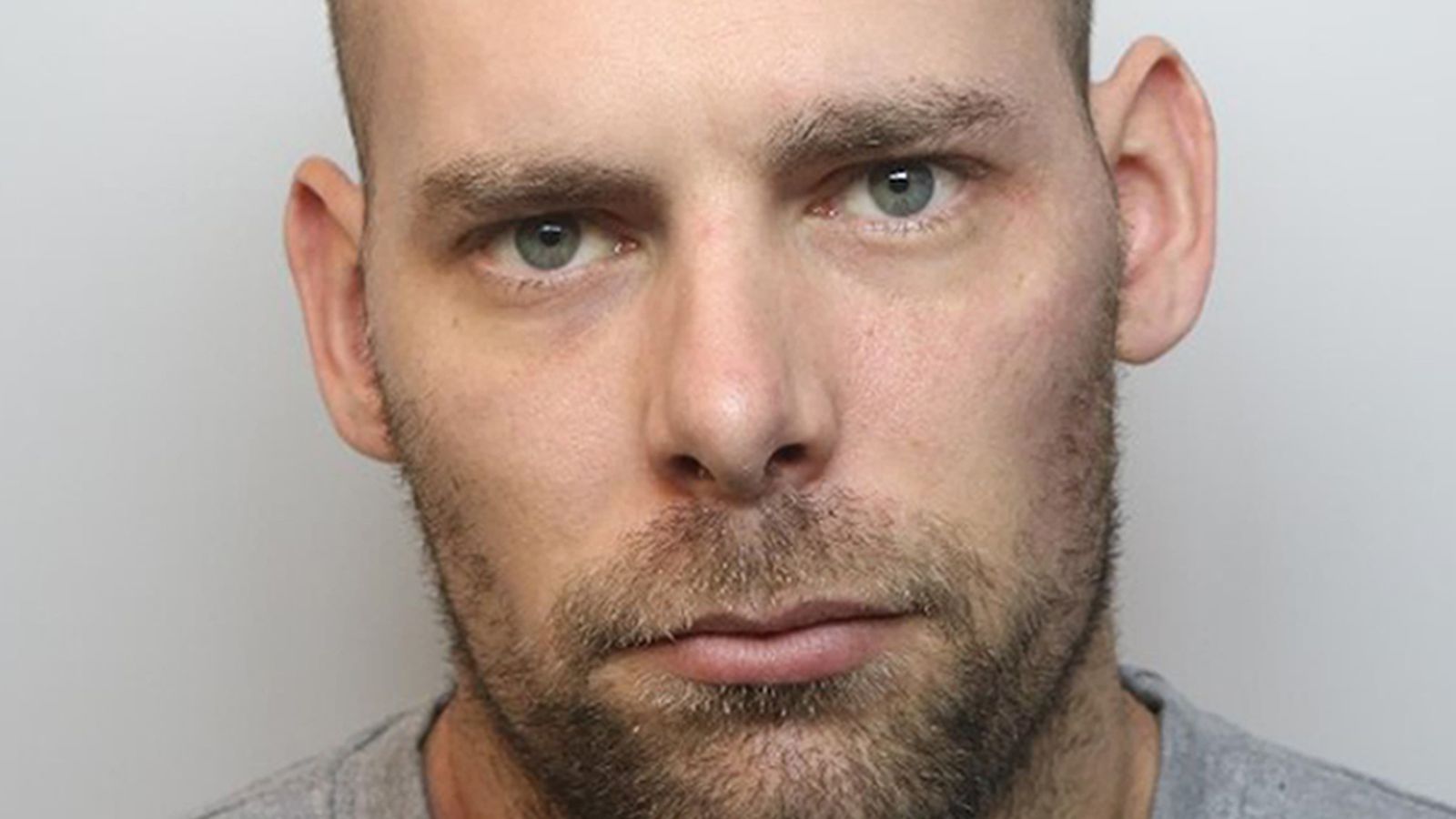This is an absolute scandal.
--------------------
Murderer was left free to kill after probation blunders
Violent offender who went on to kill Terri Harris and children John Bennett, Lacey Bennett and Connie Gent classed as ‘medium risk’
ByJack Hardy, CRIME CORRESPONDENT22 December 2022 • 9:30pm
Lacey Bennett, Connie Gent and John Paul Bennett were killed by Damien Bendall at a house in Derbyshire
A multiple child murderer was left free to kill after “appalling” blunders by the Probation Service, The Telegraph can reveal.
Damien Bendall, 32, was given a whole-life sentence this week
for killing three children and his pregnant partner with a hammer in Killamarsh, Derbyshire, last September, three months after receiving a suspended sentence for arson.
It can now be disclosed that a probation officer who assessed Bendall’s record for the sentencing judge in the arson case has been sacked for gross misconduct after miscategorising him as “medium risk” rather than “high risk”.
Probation officials believe it is unlikely that Bendall – who had a history of violent offending – would have been free to carry out one of the most grotesque child murder rampages
in recent decades if the pre-sentence report had accurately reflected his risk.
The probation officer in question is understood to have spent a lot of time working from home, meaning other members of the team did not get the usual opportunities to offer advice on or read the report.
Advertisement
Bendall’s probation supervision was subsequently passed from Swindon, where the arson took place, to the East Midlands, where another officer has separately been found guilty of misconduct for allocating his case to a trainee.
The catalogue of errors has prompted the Ministry of Justice to order the Chief Inspector of Probation to carry out a full review of the case, which sources said is likely to be released in the new year.
The revelations raise fresh questions about the adequacy of Britain’s Probation Service after
a report in September found that around 500 serious offences a year were being committed by offenders under supervision.
The agency has also been beset by high-profile scandals including that of
Joseph McCann, who went on a rampage of sexual violence across the country while under supervision, and Usman Khan,
a terrorist who murdered two people in Fishmongers’ Hall, London, while being monitored.
Sir Robert Buckland, who served as justice secretary until three days before the Killamarsh killings, told The Telegraph on Thursday night: “I think we have to acknowledge that such an error is just an appalling failure.
“The ministry has to be as open and transparent as possible about why it happened, and most importantly to make sure the risk of that happening again is kept to a minimum, if not eliminated.
“Frankly, there should be processes in place that means various thresholds and tests would be met before that sort of fundamental mistake could be made.”
Sir Mike Penning, another former justice secretary, said: “People’s lives have been lost because the system has failed them. The probation officer’s pre-sentencing report has failed them, the system has failed them.”
Some staff ‘looked for shortcuts’
Sources told The Telegraph that probation officers are required to spend eight or nine hours entering details into the convoluted Offender Assessment System (Oasys) to calculate an offender’s risk, leading some staff to “look for shortcuts”.
The officer who prepared the pre-sentence report in Swindon failed to access all the background information about Bendall and consequently did not enter crucial details into the Oasys system, it is understood.
A probation source said: “The risk assessment came out lower than it should have been. He should have been flagged as ‘high risk of harm’ but he was graded ‘medium risk’ instead. As a result, he was allocated to a trainee – it wouldn’t have happened if he’d been ‘high risk’.”
To make matters worse, the source added that probation officers in the Swindon region at the time were not allowed to recommend custody in their pre-sentence reports.
A probation inspection of the region in July last year found that “well over half of the reports we inspected did not draw on all available sources of information”.
Bendall was allowed to return to the home of his partner, Terri Harris, in Killamarsh on the condition that he wore an electronic tag and regularly met the trainee probation officer.
His trial heard, however, that he had been using drugs heavily and was fuelled by cocaine when he bludgeoned to death Ms Harris, her children John Bennett, 13, Lacey Bennett, 11, and Lacey’s friend Connie Gent, also 11, who was sleeping over.
Bendall raped Lacey as she lay dying before taking a taxi to Sheffield to exchange John’s Xbox for more drugs.
Damien Bendall was miscategorised as ‘medium risk’ rather than ‘high risk’ CREDIT: Derbyshire Constabulary/PA
Sources said the supervisor found guilty of misconduct in the East Midlands had not done all the background reading into Bendall before allocating his case to a trainee.
A more experienced probation officer would have been better equipped to spot possible signs of his spiralling drug use and any concerning patterns of behaviour.
The supervisor is understood to be appealing against the findings of misconduct, as they had responsibility for overseeing around 30 officers because of staff shortages in the region. The individual did not lose their job.
A Ministry of Justice spokesman said: “These were appalling crimes, and our thoughts remain with the victims’ families. The Deputy Prime Minister asked the Chief Inspector of Probation to conduct a review of this case, and we will respond further once this is published.”
The Government invested in an extra 1,000 trainee probation officers in 2020, followed by a further 1,500 the following year in a move designed to ease caseloads on individual officers and manage the risk of offenders more effectively.
It is hoped an additional 1,500 officers will be recruited by March next year.



